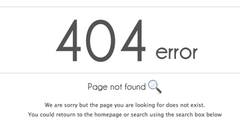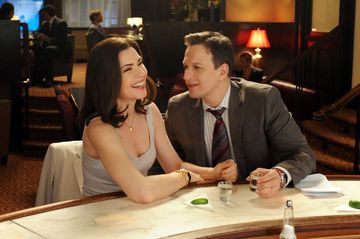On the internet no one knows you're a...
 More than 20 years ago, I got a call from a BBC researcher planning a program about the internet. Could I, they asked (I can no longer remember the researcher's gender), come on the show and explain how the internet is dangerous for women?
More than 20 years ago, I got a call from a BBC researcher planning a program about the internet. Could I, they asked (I can no longer remember the researcher's gender), come on the show and explain how the internet is dangerous for women?
Well, no, I said, I can't, because I don't believe it is. I expounded: women could participate on the internet without having to travel through areas where they didn't feel safe, especially at night. Safe behind the computer screen and miles of cabling, they didn't have to worry about being mugged, attacked, or raped. They - we - had an equal platform from which to speak. And, finally, we always had the ability to log out. You could hear the researcher's disappointment; after some back and forth, we hung up. I was not booked for that show; if I remember correctly there was at least one other such occasion.
At the time, there was a school of thought that held that women should use either gender-neutral or overtly male user names wherever possible, to rpotect themselves from unwanted attention of the wrong kind. This went alongside the general rule of thumb that if you encountered a female user name that behaved in a highly flirtatious manner the owner of that user name was almost certainly male. I disagreed, and loudly: if, I argued, women were not visible in online spaces, other women would be discouraged from joining them, and cyberspace would appear to be all male. Since the future was going to be online, this would mean women becoming invisible in public life How would this be helpful to anyone's long-term prospects?
This was a time when there was still a notion that the internet and computers were "boys' toys". Sometime around then, a well-known journalist from one of the national newspapers called me in my capaccity as a public skeptic to ask about some New Age belief or other. I don't remember what I said except that at the end of the interview, somewhat exasperated, I said that it would do women more good to join online networks than the cult of the Goddess or whatever the thing was about. A year later, my phone rang again, with a call from the same journalist. She said, ""When you said that, I wrote it down but I thought you were nuts. But I just got on CompuServe today, and oh, my God, I can't believe it."
We always like to think our era is ahead of the game: chronocentricity. Yet here we are in 2016, and the unfortunate venture capitalist John Greathouse has even more unfortunately suggested in the Wall Street Journal that women seeking IT jobs should neuter their names and social media profiles in the interests of getting past the first hurdle to serious consideration the IT jobs they are qualified for.
 The appalled reaction by many women has led him to recant and apologize - an apology we'll leave to Sorry Watch to analyze (we hope), though we'll spot Sarah Jeong's exasperated reaction on Twitter; PC Magazine's outline of Greathouse's relevant history; and takedowns from The Verge and Mic. The whole idea is antisocial and ineffective.
The appalled reaction by many women has led him to recant and apologize - an apology we'll leave to Sorry Watch to analyze (we hope), though we'll spot Sarah Jeong's exasperated reaction on Twitter; PC Magazine's outline of Greathouse's relevant history; and takedowns from The Verge and Mic. The whole idea is antisocial and ineffective.
Sadly, Greathouse probably actually thought he was being helpful; I can't imagine what the Wall Street Journal editorial staff were thinking. You'd like to think this sort of thing had died out, like the publishers in Ruth Graham's story at Slate presumably have by now, and as has Mary Ann Evans, who didn't think people would take her books seriously if they knew they were written by a woman. Did anyone ever tell Marie Curie, "Honey, I know you're talented. But if you want the Nobel Committee to take you seriously, lose the moniker"?
The world of traditional folksong is full of ballads and songs like The Handsome Cabin Boy or The Female Highwayman, in which women dress up as men in order to have access to work and adventures they would otherwise be denied. Usually they're eventually publicly found out because they get pregnant. I'm not aware of songs about the later lives of the children born to these women. In my 20s, when I first encountered and sang these songs, what I saw was: women doing stuff! Cool! Now, I notice much more the fact that unless they were testing a lover's fidelity (as in "Sovay"), a lot of these ballad women didn't end up happy, which suggests the songs were intended as morality tales: break out of your proper role and Bad Things will happen to you. The father of that cabin boy's baby, for example, was the already-married captain; in other songs ("The Soldier Maid") she's successful but betrayed by a woman who falls in love with her.
Folks, some of these songs date back to the 18th century. Can't we do better *yet*?
Wendy M. Grossman is the 2013 winner of the Enigma Award. Her Web site has an extensive archive of her books, articles, and music, and an archive of earlier columns in this series. Stories about the border wars between cyberspace and real life are posted occasionally during the week at the net.wars Pinboard - or follow on Twitter.

 Anti-doping, the inevitable focus of much of the conference, is familiar to most of us; the conference's eye-opener was the makeup of CAS, the ultimate court of appeal in doping cases. It is, explained
Anti-doping, the inevitable focus of much of the conference, is familiar to most of us; the conference's eye-opener was the makeup of CAS, the ultimate court of appeal in doping cases. It is, explained 






 This all seemed particularly relevant, as last week the House of Lords closed a
This all seemed particularly relevant, as last week the House of Lords closed a